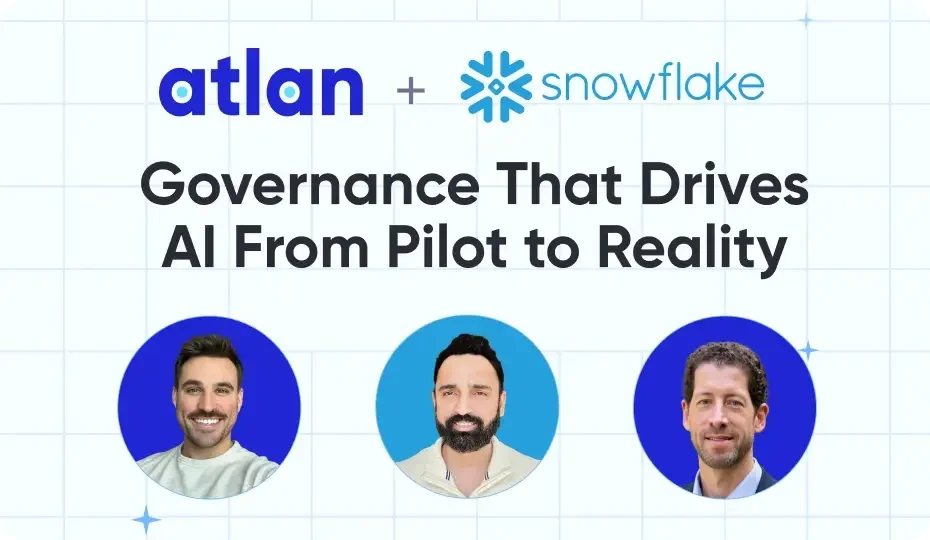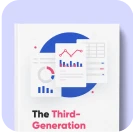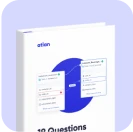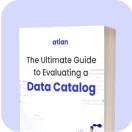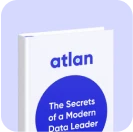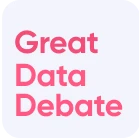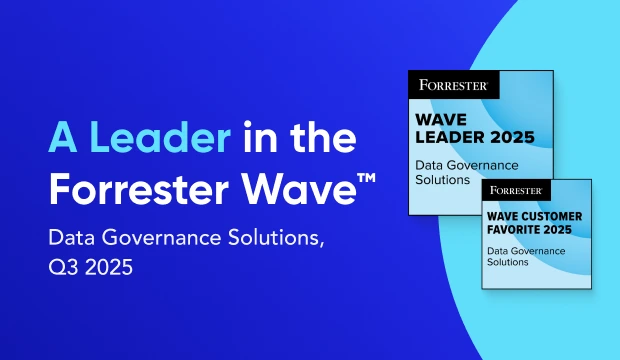Collibra Data Catalog: Is It a Viable Option for Businesses Navigating the Evolving Data Landscape?
Share this article
Collibra data catalog: Overview #
Founded in 2008, Collibra entered the data catalog market almost a decade ago with the Collibra Data Catalog. The core functionality of their data catalog is aimed at organizing and managing an organization’s data assets. The platform facilitates data discovery, understanding, and trust, enabling users to locate relevant data and make informed decisions.
Businesses today face a rapidly evolving data landscape rife with innovative solutions like generative AI, active metadata management, and data mesh architectures. As executives prioritize maximizing data’s business value while ensuring robust data governance, a critical question emerges: does the Collibra Data Catalog keep up?

Looking for a data catalog with an ROI you can present to your CDO? Atlan is designed for adoption and embedded with automation. It helps you save time, cut cloud costs, and make faster, better decisions that lead to revenue.
Table of contents #
- Collibra data catalog: Overview
- Evaluating the Collibra Data Catalog
- Meet Atlan: The Collibra data catalog alternative for modern data environments
- Related Reads
Evaluating the Collibra Data Catalog #
Evaluating a data catalog for your modern data estate requires careful consideration of key criteria:
- Architecture
- Features and benefits
- Certifications for expertise
- Pricing for best value
Only a comprehensive assessment across these dimensions can answer if Collibra data catalog is the right fit for your data cataloging journey.
Collibra Data Catalog: Legacy architecture #
Collibra data catalog offers pre-built connectors for popular data sources and tools, alongside APIs for custom integrations and application development.
However, user experiences regarding integration vary. While the API itself exists, the ease of setting up connections with specific third-party tools may depend on the availability of pre-built connectors. Additionally, some users have reported encountering challenges when attempting to integrate Collibra with external systems beyond pre-existing connectors. The implementation process of Collibra data catalog is reported to be lengthy, with customers reporting setup times exceeding a year.
Collibra data catalog: Features and benefits #
Collibra data catalog offers a range of features for managing your data assets, their various data products are embedded in their current data cataloging solution under their suite, the Collibra Data Intelligence Platform:
Data Governance: Collibra data catalog provides advanced governance features, including automated approval workflows, and a centralized hub for policy management. These features promote the delivery of trusted data. However, users report redundancy and limitations in certain functionalities, potentially hindering their effectiveness.
Data Quality: Collibra data catalog offers built-in data quality and observability capabilities to identify and address data errors and issues. This includes data profiling, cleansing, and continuous monitoring, all aimed at improving data trustworthiness and usability. Their solution supports various data sources and scales efficiently for large and complex datasets. However, it’s noted to be lacking critical functions such as security administration, connectivity, and ease of use.
Data Lineage: Collibra data catalog offers automated lineage for both technical and non-technical audiences, along with summaries and indirect relationships to capture a holistic view of data flow. However, issues with the platform’s Lineage Harvester can lead to incomplete lineage information, hindering data transparency.
Adoption and Collaboration: Collibra data catalog fosters self-service and streamlined access to data assets, aiming to maximize user productivity. Features, like crowdsource feedback for data quality and contextual search for non-technical users, aim to improve accessibility and understanding. However, the platform’s UI/UX is often described as cluttered and overwhelming. Users report difficulty finding information and struggling to grasp the tool’s functionalities.
Collibra data catalog: Certifications for expertise #
Data catalog certifications empower individuals and organizations to navigate their data strategy with confidence. Collibra data catalog offers a multi-tiered education program featuring free online courses through Collibra University, a subscription-based program. They also more comprehensive deeper content through their University Premium, and rigorous certifications for validating expertise. This comprehensive approach helps individuals and organizations unlock the full potential of the Collibra data catalog, enabling them to make data-driven decisions confidently in their enterprises.
Collibra data catalog: Pricing #
Determining the cost of the Collibra data catalog can be a complex process as the company doesn’t publicly disclose its pricing structure. The final cost depends on various factors specific to each organization.
Various third-party platforms like Capterra suggest a starting price point of around $100,000 per year and upwards. However, their pricing model has been described as difficult to comprehend, with their licensing model and add-ons being overly expensive for the provided capabilities, raising concerns about value for money.
Read more: Collibra Pricing: Will It Deliver a Return on Investment?
Meet Atlan: The Collibra data catalog alternative for modern data environments #
While platforms like Collibra data catalog may struggle to keep up with the evolving data landscape, Atlan offers a future-proof solution. Designed for agility and ease of use, Atlan empowers you to streamline and unlock the power of modern data governance and management.
Here’s how Atlan sets itself apart:
- Future-ready architecture: Open architecture supports modern data sources and technologies for future-proof scalability.
- Advanced automation: Leverage up-to-date automation features, AI-driven suggestions, and no-code integrations for effortless data management.
- Comprehensive data visibility: Experience granular, column-level lineage that is quick to set up to track data assets all the way to the source.
- Intuitive extensibility: Offers custom logic, event-driven actions, connector building, policy enforcement, approval workflows, and reporting for readiness for mission-critical projects.
- Flexible configurability: Tailor UI and experiences with user personas, purposes, and flexible metadata capture.
- Partner, not vendor approach: Value aligned pricing structure, showcases value within weeks.
Collibra data catalog: Related Reads #
- Collibra Pricing: Will It Deliver a Return on Investment?
- Collibra Alternative: 8 Reasons Why Future-Focused Data Teams Are Choosing Atlan
- Can Collibra Data Governance Meet the Evolving Needs of Your Dynamic Data Strategy?
- Alation vs Atlan: What Do Experts and Users Say?
- Alation vs. Collibra vs. Informatica vs. Atlan: A Comprehensive Comparison for Modern Data Needs
- Data Catalog Pricing: Understanding What You’re Paying For
- Atlan Pricing: Let’s find the best plan for you
- Alation Pricing: Estimate The Total Cost of Ownership
- Informatica Data Catalog Pricing: Estimate the Total Cost of Ownership
- Data Catalog Guide: Examples, What to Look For, and Where They’re Going
- AI Data Catalog: It’s Everything You Hoped For & More
Share this article

